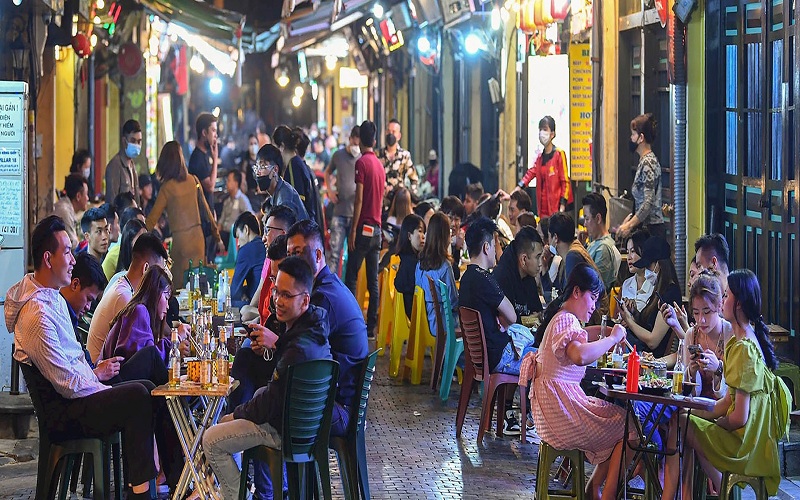Food safety to protect Hanoi street food brand
To ensure the safety of food services and street food in the community, Hanoi has put numerous initiatives into action.
As street cuisine is a unique cultural feature of Hanoi, the city government always urges people to ensure food safety and hygiene.
Since 2018, Hanoi has piloted the "controlled food safety street" model in eight districts of Ba Dinh, Hoan Kiem, Cau Giay, Ha Dong, Long Bien, Thanh Xuan, Tay Ho, and Dan Phuong, with the participation of nearly 400 food outlets. After more than six years, the model has yielded positive results.
Every street in Hanoi is lined with street food vendors selling a variety of well-known dishes such as bread, fried spring rolls, noodles, and others that have been put on the world's culinary map.
There's no denying that these are dishes with reasonable prices that attract tourists, but it's uncertain how safe and hygienic they are. According to statistics, Hanoi has nearly 77,000 food outlets, including restaurants and street food stalls.
Tong Duy Tan cuisine street (in Hoan Kiem District) is a favorite destination for diners in the capital. Photo: Hanoimoi |
The Hanoi Department of Health, as the standing body of the city's Food Safety Steering Committee, has developed plans and taken numerous actions to ensure the safety of street food and food services in the city.
According to the department’s Deputy Director Vu Cao Cuong, relevant agencies have closely coordinated with each other in food safety management and with neighboring provinces to trace the origin of food ingredients transported to Hanoi.
In addition, multidisciplinary inspection teams on food safety, food production, and food service have been regularly conducted to strictly deal with food outlets that break the rules.
Food vendors have a greater sense of responsibility for maintaining food safety and hygiene thanks to the "Controlled Food Safety Street" model, which also serves to strengthen the role and responsibilities of local authorities in food safety management.
After more than six years, street food stalls have undergone a facelift, adding to the urban landscape with spacious and well-decorated spaces that meet the criteria of food safety and commercial civilization. This is an impressive result, as in the past, Hanoi's food stalls were mostly improvised and did not pay enough attention to the origin of the food.
Nguyen Thanh Ha, a resident of Long Bien District, told Hanoimoi that the model helps people have a credible address to use safe food, which contributes to raising people's awareness in production, business, and consumption.
"Previously, I didn't think about food safety when I bought street food. Nowadays, consumer awareness has drastically evolved. They pick tasty eateries, but they also give food stall hygiene a lot of thought," Ha said.
Most street vendors on food safety-controlled streets have also equipped themselves with gloves and food tongs to ensure hygiene. They are required to have contracts with food suppliers asking them to ensure food safety conditions according to regulations. For the health of the community, many businesses have signed a pledge not to use or sell food of unknown origin.
To further raise community awareness, the Hanoi Food Safety and Hygiene Department coordinates with the Women's Union, the Farmers' Association, and local departments to organize annual seminars and training conferences for business owners and those directly involved in food processing.
As food safety is closely related to human health, the first concern is each individual's sense of social duty, said Dang Thanh Phong, Head of Hanoi's Food Safety and Hygiene Sub-department.
"We need to intensify communication to raise awareness of this issue among both sellers and buyers. People must promptly report to the authorities if they find street food businesses that pose a potential food safety risk," Phong said.











